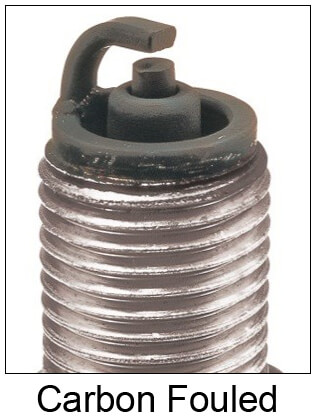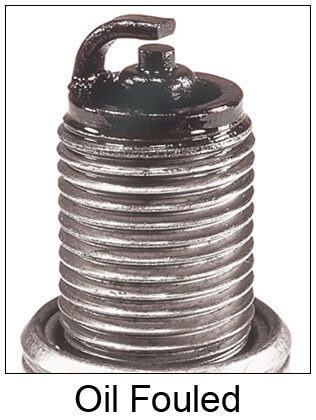What Causes Engine Misfires?
When one thinks of misfires, which automotive component of the ignition system comes to mind? Most people would agree on spark plugs. However, there are many elements that can cause a misfire. A misfiring spark plug is often a symptom of another issue with the vehicle and not always the cause of the trouble. Replacing the spark plugs may temporarily improve the vehicle’s performance, but ultimately, the problem will return unless the root issue is repaired. Problems with the ignition system, fuel system, emissions system and overall engine condition, may lead to misfire.
 Ignition system components including the distributor, distributor cap, rotor, spark plug wire set, coil, or coil on plug boot, can create misfires if they have failed. A worn set of spark plug wires may allow voltage to escape before reaching the spark plug, causing a misfire or no-spark condition and may eventually result in a fouled spark plug, requiring replacement. Coil failures may be intermittent and may only occur under high temperature conditions. Spark plugs which have exceeded their recommended service interval and have expanded gaps, may also contribute to misfires.
Ignition system components including the distributor, distributor cap, rotor, spark plug wire set, coil, or coil on plug boot, can create misfires if they have failed. A worn set of spark plug wires may allow voltage to escape before reaching the spark plug, causing a misfire or no-spark condition and may eventually result in a fouled spark plug, requiring replacement. Coil failures may be intermittent and may only occur under high temperature conditions. Spark plugs which have exceeded their recommended service interval and have expanded gaps, may also contribute to misfires.
Fuel system problems may cause a rich or lean condition, which can contribute to spark plug misfires. Leaky, or clogged, fuel injectors or poorly tuned carburetors are often the cause. Routine replacement of fuel filters can help prevent fuel system problems. Engines which are used for seasonal use, such as lawnmowers or snow blowers, can often suffer from build-up of varnish on fuel system components if proper fuel storage methods are not followed.
The emissions system, specifically the oxygen sensors, is designed to provide feedback to the ECU, which can strengthen or weaken the fuel delivery. If an oxygen sensor has failed, or is no longer communicating with the ECU, the vehicle will default to a safer rich fuel condition. This is known as open loop operation. Prolonged driving in open loop mode not only wastes fuel, but can cause damage to the catalytic converters and may cause fuel-fouled spark plugs.
 Finally, we must not overlook the overall condition of the engine. Spark plugs can serve as a window to the engine’s health. Spark plugs which are oil-soaked, or have large amounts of deposits, may show the engine has poor oil seals or low compression. If these conditions are severe enough, the spark plugs may become oil-fouled and result in a no-spark condition. These mechanical problems must be repaired or the problem may continue to repeat itself.
Finally, we must not overlook the overall condition of the engine. Spark plugs can serve as a window to the engine’s health. Spark plugs which are oil-soaked, or have large amounts of deposits, may show the engine has poor oil seals or low compression. If these conditions are severe enough, the spark plugs may become oil-fouled and result in a no-spark condition. These mechanical problems must be repaired or the problem may continue to repeat itself.
If any of these conditions appear outside of routine spark plug maintenance, it is a good idea to have the engine inspected by a reputable repair facility and to have any service issues repaired. Correcting the root problem will save time, money and headaches in the long run.
____________________________________________________________
Article courtesy of NGK Spark Plugs. Part of NGK's "Did You Know" series.
NGK SPARK PLUGS
NGK Spark Plugs came up with the Did You Know series simply because we want to educate. We ask you to share our expertise with anyone you’d like. Go ahead, it’s for you. The Did You Know series is written by the Technical Support Team of NGK Spark Plugs (U.S.A.), Inc.
